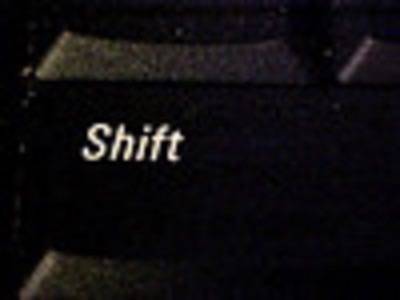In April, Umair Haque posted a manifesto on his blog on the Harvard Business Publishing web site where he called for today’s investors and start-ups to start building applications to “change the world” instead of just making apps that make money. He challenged Silicon Valley to find a problem to fix that will change the world for the better and then pledged that he would help by providing free consulting. Recently, he revisited this topic which he was due to speak on at this year’s Supernova conference.

The Manifesto
In this latest post, a summary of the speech Haque had planned for the conference, he claimed that 21st century capitalism needs a revolution. As businesses focus solely on profits, large part’s of the world’s population still fight extreme poverty. And our wealth, he says, isn’t even sustainable:

We’re richer, but that wealth doesn’t reflect durable, authentic economic value – which is hitting fast diminishing returns. The growth that we’re pursuing is neither sustainable – nor is it, in many ways, real growth at all.
This manifesto for change comes at an important time, when a recent, but growing trend of Web 2.0 ennui is beginning to strike the citizens of the social media landscape. Even VC Fred Wilson was recently caught wondering if he was “bored with Web 2.0,” saying:
But I am a bit jealous of friends who are working on finding and funding alternative energy or biomedical technologies that have the potential to address the serious problems facing the world. At times it seems that helping the web become more social, intelligent, mobile, and playful is not as impactful.
Looking For Meaning
Our recent obsessions of late with all the latest new shiny objects, while fun, often leave us with an emptiness that comes from participating in what’s ultimately inconsequential behavior in a world that’s filled with turmoil. Thanks to the non-stop information flow coming in from all areas of the web, we’re acutely aware of the suffering that’s going on in countries with political turmoil, of how the latest natural disaster has torn apart people’s lives, and even what challenges the disadvantaged populations from within our own borders face.

While a healthy dose of social media is fun and sometimes informative, it rarely taps into our desire to feel as if what we’re doing has meaning or purpose. Being “social” online tends to be a casual activity where you make friends or share news, and not one where you’re fighting to solve the world’s problems. (Although we did discover a few ways to use social media for social good not too long ago, they’re often few and far between). Web 2.0 is is like Internet candy (well, maybe not as sweet as lolcats and YouTube), but it’s definitely not, for the most part, a satisfying meal.
Maybe that’s as it should be – there’s nothing wrong with having fun – but perhaps it’s time for a shift. The social tools we know and love won’t go away, but do we need more and more of the same? In the end, Web 2.0 is supposedly not making any money anyway, so why not use our knowledge to build tools to better the world instead?
Ideas Exist, But Where’s the Money?
The ideas are already out there. Take for example, this post by Paul Lamb on MediaShift Idea Lab. He envisions a mobile app that could empower poor communities through the power of technology.

The fictional app called LOCOBEAT makes social media and collaboration a real tool for change for empowerment. The app, designed for use by the overlooked, low income segments of the U.S. population would map the neighborhood to provide users with safe routes to work and school; send alerts which post to the map when new job openings are available; the social network of the apps’ users would keep them connected so as to communicate to each other about possible job postings, like a mobile LinkedIn; the app’s music sharing service would let users rate music, and that is used by the community to promote local artists; text messages from the grocer would be sent to alert users when items go on sale; etc.
Alexander Vanelas also reminded us about Muhammed Yunus‘s idea for Microcredits, small loans to help poor gain employment.
Those are just a couple of ideas, and LOCOBEAT only lacks the people willing to fund and develop it. But where are the rest?
Time To Change?
In a post on SeedWatcher, Marc Hustvedt responds to Haque’s article and ponders “how can we use Twitter to fight global hunger?” However, the real question may be “can we use Twitter to fight global hunger?” Will the tools of change really be the Twitters and Facebooks of today, or will we need to embrace a whole new paradigm designed just for the purpose of change? Isn’t about time we put our money where our mouth is and find out?
Image Credits: Boredom: ArSiSa7; Shift: emilyd10; Money: TWCollins

















